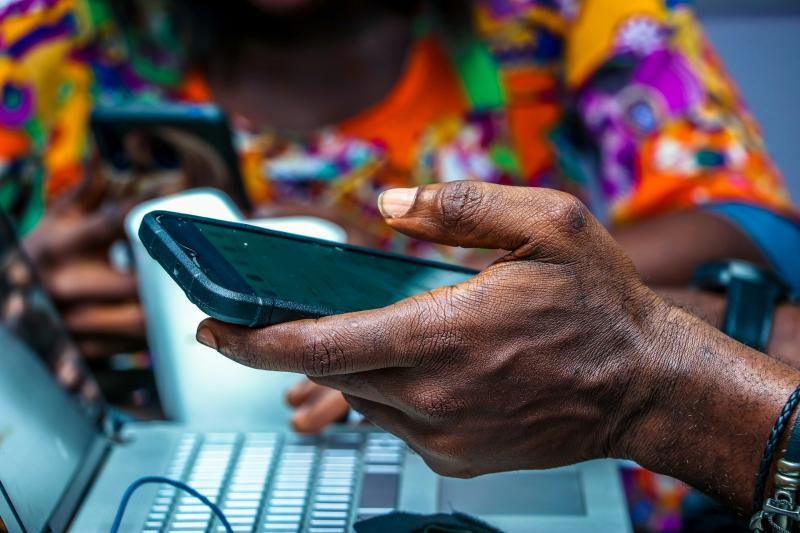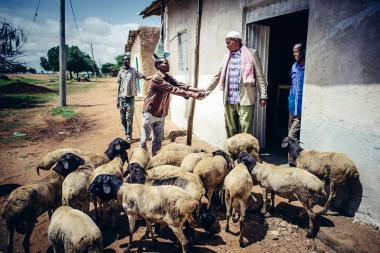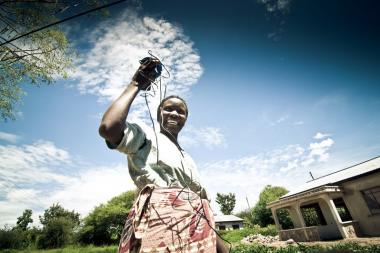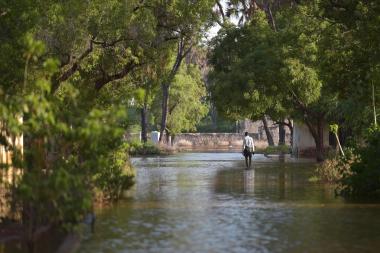News
From data to resilience: Kelvin Shikuku and KAZNET shortlisted for 2025 Sasakawa Award
SPARC scientist Kelvin Shikuku is shortlisted for 2025 Sasakawa Award for Disaster Risk Reduction.
Publisher SPARC
Kelvin Shikuku, SPARC senior scientist at the International Livestock Research Institute (ILRI), has been shortlisted for the prestigious 2025 Sasakawa Award for Disaster Risk Reduction for his ongoing work on KAZNET, a ‘crowdsourcing’ mobile phone app scaled by the SPARC-Drought Index-insurance for Resilience in the Sahel and the Horn Africa (DIRISHA) project.
In recognition of innovation and potential impact, Kelvin was one of only six finalists shortlisted by the United Nations Office for Disaster Risk Reduction (UNDRR) for promising contributions to building resilient communities. He was selected from a pool of nearly 200 global nominees.
The winner of the award was announced at a ceremony on June 5th, in Geneva, Switzerland, as part of the Eighth Session of the United Nations Global Platform for Disaster Risk Reduction (GP2025). This theme of this year’s award was ‘Connecting science to people: democratizing access to innovation and technology for disaster resilient communities’ and highlights the vital role accessible scientific knowledge plays in disaster resilience.
KAZNET is a cutting-edge citizen science platform that delivers ‘near real-time’ data on market trends, rangeland conditions, and food security across the drylands of Kenya and Ethiopia. KAZNET allows agropastoralists with mobile phones to collect and then share data on what people are eating, the health of their livestock, forage conditions and livestock markets - information that helps them to better respond to drought.
The key to its success is that KAZNET provides and shares accurate data that people can rely and act on. In a participatory process, agropastoralists organise data collection - or ‘micro tasking’ - in an easy, low-cost way.
For their work with KAZNET, the award organisers recognised how Kelvin and his team at the ILRI Livestock, Climate and Environment programme have “…demonstrated exceptional commitment to inclusive and resilient approaches in disaster risk reduction, embodying the all-of-society approach outlined in the Sendai Framework.”
They added: “Their work represents critical contributions toward meeting the Sustainable Development Goals and the targets of the Sendai Framework through democratizing access to science and technology for disaster resilience.”
Background
KAZNET was developed by ILRI with support from the United States Agency for International Development (USAID) and the United Kingdom Foreign, Commonwealth and Development Office (FCDO). It was scaled in Kenya through the Accelerating Impacts of CGIAR Climate Research for Africa (AICCRA) project and in Ethiopia through the SPARC-DIRISHA project, the CGIAR Research Initiative on Livestock and Climate and the CGIAR Initiative on Digital Innovations. The project represents a scalable solution to one of the region’s toughest challenges: building climate-smart, data-driven resilience from the ground up in arid and semi-arid lands and fragile contexts.
About the Sasakawa Award
The Sasakawa Award for Disaster Risk Reduction was established in 1986 with support from the Nippon Foundation alongside the World Health Organization Sasakawa Health Prize and United Nations Environment Programme (UNEP) Sasakawa Environment Prize to recognise outstanding contributions to building community resilience and reducing disaster risk.
All finalists at this year’s Sasakawa Award received a certificate of recognition. The winners, Dr. Mrutyunjay Mohapatra, from the India Meteorological Department, and Dr. Harkunti Rahayu, from the Indonesian Disaster Expert Association, also received a trophy and a grant to further their work.
Resources
Watch this video about KAZNET here.
Don’t miss this brief on how researchers used crowdsourced data gathered using KAZNET to observe changes in food security attributable to drought.
Watch a recording of the Sasakawa Award ceremony here.

Man holding mobile phone
Credit Image by Olumide Bamgbelu on Unsplash


